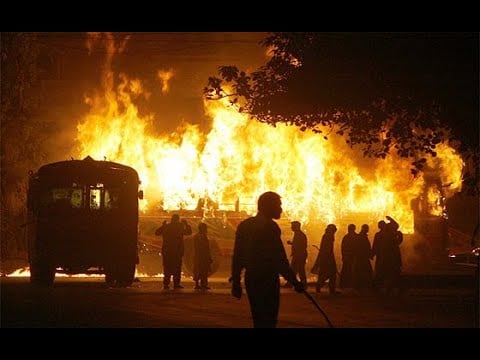Will China help Russia if the USA attacks SYlRIA? 5 China Weapons will Help Russia, US Should Fear?
Military Update: Will China help Russia if the USA attacks SYlRIA? 5 China Weapons will Help Russia, US Should Fear?
The China–North Korea Relationship
China is North Korea’s biggest trade partner and arguably has the most leverage on Kim Jong-un’s regime. But while Beijing appears willing to condemn its neighbor’s nuclear developments, analysts say its cautious policies remain focused on stability.
China is North Korea’s most important ally, biggest trading partner, and main source of food and energy. It has helped sustain Kim Jong-un’s regime, and has historically opposed harsh international sanctions on North Korea in the hope of avoiding regime collapse and a refugee influx across their 870-mile border. Pyongyang’s fifth nuclear test and ongoing missile launches have complicated its relationship with Beijing, which has continued to advocate for the resumption of the Six Party Talks, the multilateral framework aimed at denuclearizing North Korea. A purge of top North Korean officials since its young leader came to power and the assassination of Kim Jong-nam, Kim Jong-un’s exiled half brother, in Malaysia also spurred renewed concern from China about the stability and direction of North Korean leadership. Yet China’s policies have done little to deter its neighbor’s nuclear ambitions.
Alliance Under Stress
China’s support for North Korea dates back to the Korean War (1950–1953), when its troops flooded the Korean Peninsula to aid its northern ally. Since the war, China has lent political and economic backing to North Korea’s leaders: Kim Il-sung (estimated 1948–1994), Kim Jong-il (roughly 1994–2011), and Kim Jong-un (2011–). But strains in the relationship began to surface when Pyongyang tested a nuclear weapon in October 2006 and Beijing supported UN Security Council Resolution 1718, which imposed sanctions on Pyongyang. With this resolution and others (UNSC Resolutions 1874 [PDF], 2094 [PDF], 2270, and 2321 [PDF]), Beijing signaled a shift in tone from diplomacy to punishment. After North Korea’s most recent nuclear test in September 2016, China called on North Korea to not take action that would “worsen the situation.” Still, Beijing continues to have wide-ranging ties with Pyongyang, including economic exchanges and high-level state trips such as senior Chinese Communist Party member Liu Yunshan’s visit to attend the seventieth anniversary of North Korea’s ruling party in October 2015.
Separately, China has stymied international punitive action against North Korea over human rights violations. China criticized a February 2014 UN report that detailed human rights abuses in North Korea, including torture, forced starvation, and crimes against humanity, and attempted to block UN Security Council sessions held in December 2014 and 2015 on the country’s human rights status.
Even China’s punitive steps have been restrained. Beijing only agreed to UN Resolution 1718 after revisions removed requirements for tough economic sanctions beyond those targeting luxury goods. It did agree to further sanctions, some of which call for inspections of suspected nuclear or missile trade, but Western officials and experts doubt how committed China is to implementing trade restrictions.
China’s Priorities
China regards stability on the Korean peninsula as its primary interest. Its support for North Korea ensures a friendly nation on its northeastern border and provides a buffer between China and the democratic South, which is home to around twenty-nine thousand U.S. troops and marines. “Chinese leaders have no love for Kim Jong-un’s regime or its nuclear weapons, but it dislikes even more the prospect of North Korea’s collapse and the unification of the Korean Peninsula with Seoul as the capital,” writes CFR President Richard N. Haass.
Beijing has consistently urged world powers not to push Pyongyang too hard, for fear of precipitating regime collapse and triggering dangerous military action. “Once a war really happens, the result will be nothing but multiple loss. No one can become a winner,” said Chinese Foreign Minister Wang Yi in April 2017, urging the United States and North Korea to show restraint.




















